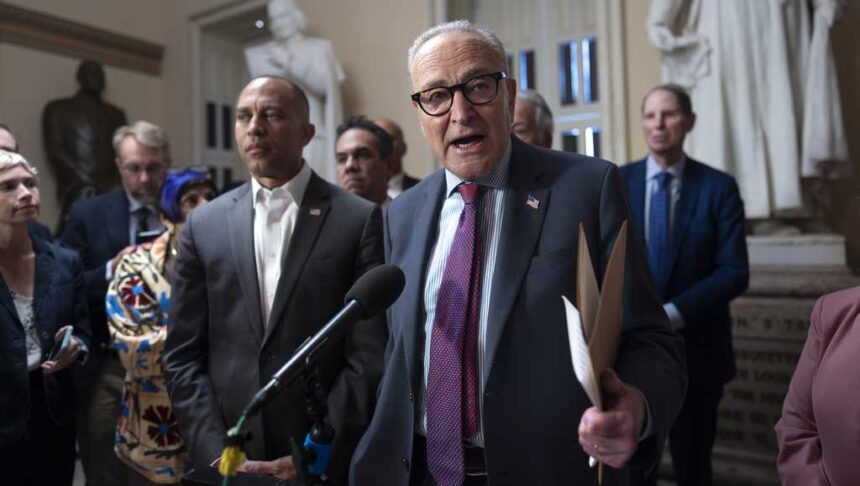In a crucial political development, bipartisan support in Congress is emerging for the extension of tax credits that have significantly lowered health insurance costs for millions since the COVID-19 pandemic began. However, these credits are at risk of expiring due to a standoff between Republicans and Democrats regarding their future.
Democratic leaders are threatening a government shutdown at the month’s end if the Republican-controlled Congress does not agree to extend the health insurance subsidies originally implemented in 2021 and renewed in 2022. These credits primarily benefit low- and middle-income individuals purchasing insurance through the Affordable Care Act (ACA), and they are set to expire at the end of this year.
Interestingly, some Republican lawmakers, who have traditionally opposed the ACA established during President Obama’s administration, are now reconsidering their stance. They acknowledge the potential financial fallout for constituents if these subsidies are allowed to lapse, yet the party remains divided. While some GOP leaders express a willingness to explore tax credit extensions, many party members hold firm opposition, and those in favor suggest a rethinking of the credits that could trigger a protracted health care debate.
According to Senate Democratic Leader Chuck Schumer, without congressional action, millions may soon receive notification of drastic increases in their health insurance costs—some by hundreds or even thousands of dollars. Enrollment numbers in ACA plans have soared to 24 million, largely thanks to the expanded subsidies allowing certain lower-income individuals to access health plans with no premiums, and capping premiums for higher earners at 8.5% of their income.
With the expiration date approaching, many enrollees are already receiving notices about anticipated premium hikes, with some insurers proposing increases up to 50%. The pressure to act is mounting as major industries, including health insurers and hospital executives, warn that they are already grappling with financial constraints stemming from earlier Medicaid cuts.
David Merritt, a senior executive from Blue Cross Blue Shield, noted that there is widespread acknowledgment across both parties about an impending spike in premiums, presenting a critical opportunity for Congress to intervene.
States are beginning to react; in Iowa, insurance officials are weighing premium hikes ranging from 3% to 37% amidst public outcry. Individuals from various sectors, including small business owners, are voicing concerns over the impact of rising costs on their health coverage.
On Capitol Hill, the debate over extending these subsidies has become intertwined with a broader conversation about government funding, as various leaders have pledged not to support funding bills unless health care tax credit extensions are included. Meanwhile, Republican leaders are pushing for more time to analyze the subsidies and consider their potential adjustments.
House GOP leaders are currently contemplating a short-term funding bill that would delay a government shutdown but likely exclude any provisions for subsidy extensions. Some Republican members, particularly those in competitive districts, are feeling the heat and have introduced legislation for a one-year extension of the tax credits.
Several prominent Republican figures, including Missouri Senator Josh Hawley, have voiced strong concerns about the potential consequences of inaction, predicting “massive increases” in premiums if Congress fails to extend the subsidies. Others, like Texas Senator John Cornyn, advocate for scaling back benefits for high-income recipients, reflecting ongoing internal party debates.
As the first day of open enrollment for ACA plans nears on November 1, lawmakers face mounting pressure to act and avert what could be disastrous increases in health care costs for many Americans.







